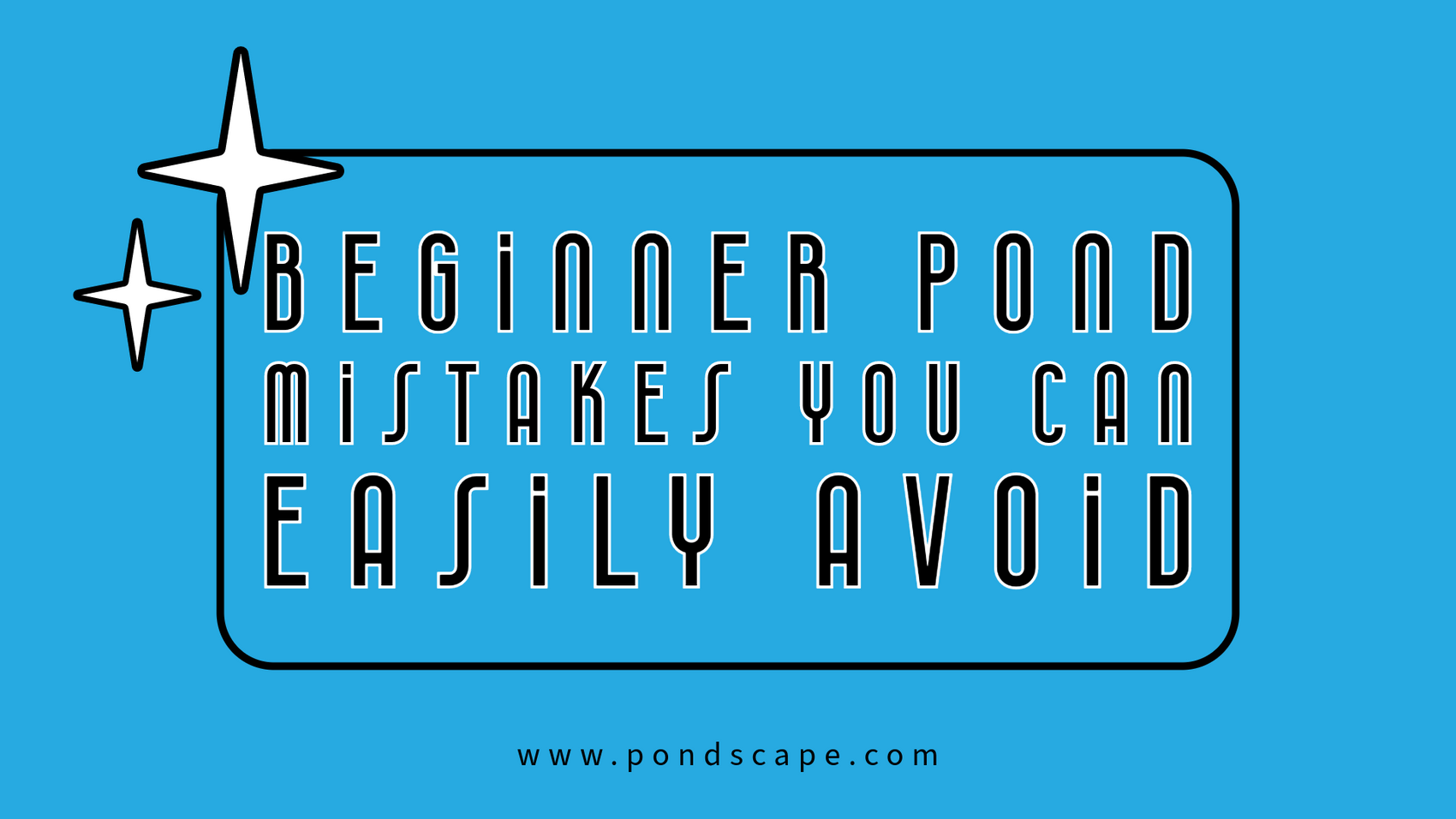Embarking on the journey of pond ownership and maintenance can be an exhilarating venture, but it's not without its challenges. To ensure a thriving pond environment, it's crucial to sidestep common beginner mistakes. Here are key pitfalls to avoid:
Neglecting Comprehensive Planning:
Rushing into pond construction without a well-considered plan often leads to future complications. Factors like pond size, location, depth, and the integration of a balanced ecosystem should be carefully thought out. A meticulously designed plan serves as a blueprint for a successful pond venture.
Overstocking the Pond:
Resist the urge to populate your pond with an abundance of fish right away. Overstocking disrupts the pond's delicate balance, leading to water quality issues and stressed fish. Introduce fish gradually, allowing the pond's ecosystem to acclimate to their presence and maintain a healthy balance.
Insufficient Filtration and Circulation:
Adequate filtration and efficient water circulation are paramount for a thriving pond. Inadequate filtration systems or poor water circulation can result in algae blooms, stagnant water, and imbalanced ecosystems. Investing in suitable filtration systems and pumps appropriate for your pond's size ensures optimal water quality and clarity.
Neglecting Regular Maintenance:
Pond maintenance is an ongoing commitment. Ignoring tasks such as removing debris, trimming overgrown plants, and inspecting equipment can lead to water imbalances and potential issues. Consistent and proactive maintenance routines are essential for a healthy and balanced pond ecosystem.
Misjudging Plant Selection:
Not all aquatic plants thrive in every pond environment. Selecting the wrong plants can hinder their growth and impact the overall ecosystem. Conduct thorough research to choose aquatic plants suitable for your pond's depth, sunlight conditions, and compatibility with other flora and fauna.
Disregarding Water Quality Parameters:
Regularly monitoring and maintaining optimal water quality parameters is crucial. Testing for pH levels, ammonia, nitrites, and oxygen content ensures a healthy environment for fish and plants. Ignoring water quality can lead to stress in aquatic life and disrupt the pond's ecological equilibrium.
Forgetting Winter Preparation:
Preparing the pond for winter is essential, especially in colder climates. Failure to do so can harm fish and plants. Installing a pond heater or aerator and considering a surface cover to prevent freezing can maintain oxygen levels and prevent potential harm during colder months.
By understanding these common beginner mistakes and taking proactive steps to avoid them, you can set the foundation for a stunning, sustainable, and thriving pond that brings joy and tranquility for years to come.

